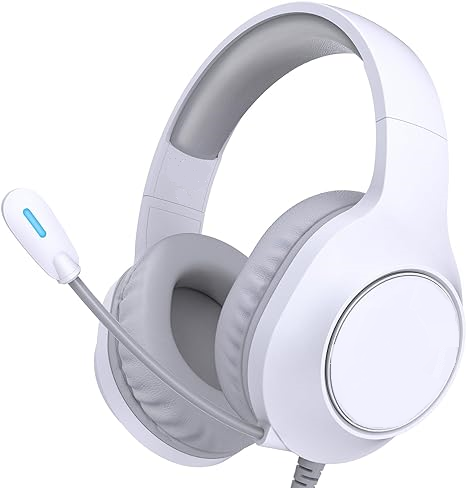Gaming headsets are crucial for a truly gaming experience. They not only deliver high-quality audio but also provide clear communication, enhancing both the enjoyment and competitiveness of your games. Whether you’re an avid gamer or a casual player, choosing the right gaming headset can make a significant difference. In this guide, we’ll explore the various types of gaming headsets, key features to look for, and tips to help you select the best one for your needs.
Types of Gaming Headsets
1. Over-Ear Headsets Over-ear headsets feature large ear cups that completely encase your ears, providing superior sound isolation and comfort. These headsets are ideal for long gaming sessions, as their cushioned ear pads help reduce ear fatigue and block out external noise. They are a popular choice among serious gamers who prioritize sound quality.
2. On-Ear Headsets On-ear headsets have smaller ear cups that rest on your ears rather than completely covering them. They are generally lighter and more compact than over-ear models, making them a good option for gamers who prefer a less bulky design. However, they may not provide as much sound isolation as over-ear headsets.
3. In-Ear Headsets In-ear headsets, or earbuds, are compact and portable, making them a convenient choice for gamers on the go. They fit directly into the ear canal and are less obtrusive than over-ear or on-ear models. While they might lack some of the audio depth of larger headsets, they are ideal for those who value portability and convenience.
4. Wireless Headsets Wireless headsets connect to your gaming system via Bluetooth or a proprietary wireless connection. They offer the freedom to move around without being tethered by cables, enhancing your comfort during gameplay. Wireless models often come with a rechargeable battery, so it’s essential to check battery life and charging options.
5. Wired Headsets Wired headsets connect directly to your gaming system or PC via a cable. They are known for their reliable connection and consistent audio quality without the need for batteries. Wired headsets are favored by gamers who prioritize performance and minimal latency.
Key Features to Consider
1. Audio Quality High-quality audio is essential for gaming experience. Look for headsets with clear, detailed sound and strong bass. Surround sound features can enhance your ability to detect in-game sounds from different directions, giving you a competitive edge.
2. Microphone Quality A good gaming headset should have a high-quality, adjustable microphone for clear communication with teammates. Features such as noise-canceling technology help filter out background noise, ensuring that your voice comes through clearly during intense gaming sessions.
3. Comfort and Fit Comfort is crucial for long gaming sessions. Choose a headset with adjustable headbands and padded ear cups to ensure a comfortable fit. Lightweight designs and breathable materials can also help reduce heat and pressure on your ears.
4. Durability Gaming headsets are an investment, so durability is important. Look for headsets made from high-quality materials and check for reviews regarding their longevity. Reinforced cables and sturdy build quality contribute to a longer-lasting product.
5. Compatibility Ensure that the headset is compatible with your gaming system, whether it’s a console, PC, or mobile device. Some headsets offer multi-platform support, allowing you to switch between different systems easily.
6. Additional Features Consider extra features such as customizable RGB lighting, built-in controls for adjusting volume and microphone settings, and software for sound customization. These features can enhance your gaming experience and provide added convenience.
Tips for Choosing the Right Gaming Headset
1. Assess Your Needs Think about your gaming style and preferences. If you play competitive games, prioritize headsets with excellent sound quality and a clear microphone. For casual gaming, comfort and versatility might be more important.
2. Read Reviews Check out reviews from other gamers to get an idea of the headset’s performance, comfort, and durability. User feedback can provide valuable insights and help you make an informed decision.
3. Test the Fit If possible, try on the headset before buying it. Comfort is subjective, so it’s important to ensure that the headset feels right on your head and ears.
4. Set a Budget Gaming headsets come in a range of prices. Determine your budget and look for a headset that offers the best combination of features and value within your price range.
5. Consider Brand Reputation Choose headsets from reputable brands known for their quality and customer service. Well-established brands often provide better support and warranties.

